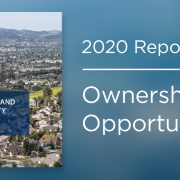The Limits of Libertarianism
Over the past half-century, libertarians have played a critical role in the ever-growing war against governmental nonsense. If you want to read the best critiques of wasteful transit policy, sports stadia, government pensions or cancel culture, you can find it among liberty-minded outlets like Reason magazine, the Cato Institute and numerous free-market think tanks. They have provided a strong and necessary voice for free-market capitalism at a time when it faces serious challenges, notably from China and other state-directed systems.
Yet in recent years, libertarians increasingly seem less concerned with how their policies might actually impact people. Convinced that markets are virtually always the best way to approach any issue, they have allied with many of the same forces – monopoly capital, anti-suburban zealots and the tech oligarchy – which are systematically undermining the popular rationale for market capitalism.
Perhaps after the endless regulatory assaults of the Covid years, we could be nudging to a ‘libertarian moment’, the Wall Street Journal’s Gerard Baker hopes. But this would depend on having a vibrant social base, whose personal wellbeing is at stake, to push society in that direction.
The critical issue here is class. Libertarians tend to enjoy theory, but flounder when it comes to addressing the actual needs of people. Barely anyone today looks to former House speaker Paul Ryan, with his notions of privatising social security, or to other Fountainhead politicos of his ilk for leadership. The corporate superstructure has moved to the Democrats, while a large part of the GOP’s class base – notably small businesspeople, artisans and skilled workers – feels abandoned by the corporate free-market Republicans and is more attracted to populist politics.
Nowhere is the disconnect between libertarianism and its traditional base of small-property owners more obvious than in housing. In their zeal, sometimes justified, to end the worst zoning abuses, the libertarians have allied themselves with two forces, monopoly capital and social engineers (also known as city planners), whose goal is not to expand the blessings of ownership, but to squelch it for all but a few. Their end game is to leave most people stuck in small apartments.
Libertarians have served as fellow travellers and allies to the hyperactive, oligarch-funded YIMBY (‘Yes in My Backyard’) movement. In essence, as former Cato fellow Randal O’Toole notes, the libertarian right has ‘betrayed’ the very middle class that most supports conservative causes. O’Toole, who had been Cato’s land-use expert since 2007, was forced out in favour of an alliance, as he puts it, working hand-in-hand with left-wing groups seeking ‘to force Californians to live in ways in which they didn’t want to live’.
Read the rest of this piece at Spiked.
Joel Kotkin is the author of The Coming of Neo-Feudalism: A Warning to the Global Middle Class. He is the Roger Hobbs Presidential Fellow in Urban Futures at Chapman University and Executive Director for Urban Reform Institute. Learn more at joelkotkin.com and follow him on Twitter @joelkotkin.
Photo: Mr.TinMD via Flickr under CC 2.0 License.




 Public Domain
Public Domain Beatrice Murch, under CC 2.0 License
Beatrice Murch, under CC 2.0 License


